All images: Rick Veitch/King Hell Press
We all know Superman’s origin story. It’s so simple and elemental that Grant Morrison was able to boil it down to “Doomed planet. Desperate scientists. Last hope. Kindly couple” in All-Star Superman‘s opening page. But in the 1990s, another iconoclast comics-maker made a fable about the unfairness at the core of Superman’s rise to ubiquity.
Originally released in 1992, Rick Veitch’s series The Maximortal masterfully deconstructs both the idea and creation of Superman in a black-and-white tale that is at once righteously angry and phantasmagorically expansive.
The story of Superman is, in part, the story of America’s rise to global dominance in the 20th century. The strange visitor from another planet became all-pervasive and inescapable, forever a reminder of the United States’ financial, political, and military might.
But strength in those arenas only comes from the existence of an oppressed underclass. In The Maximortal‘s mythopoetic retelling of the story of the story of Superman, the artists tragically become exactly that.
The Maximortal opens in Russia, at a site meant to be understood with the mysterious Tunguska Event of 1908. In the forest, we see a muscular figure encounter an elderly man. The figure transforms itself from male to female, has intercourse with the man, and gives birth to an embryo. Encasing the embryo in a metallic ore, the alien figure throws the makeshift womb into space and flies off.
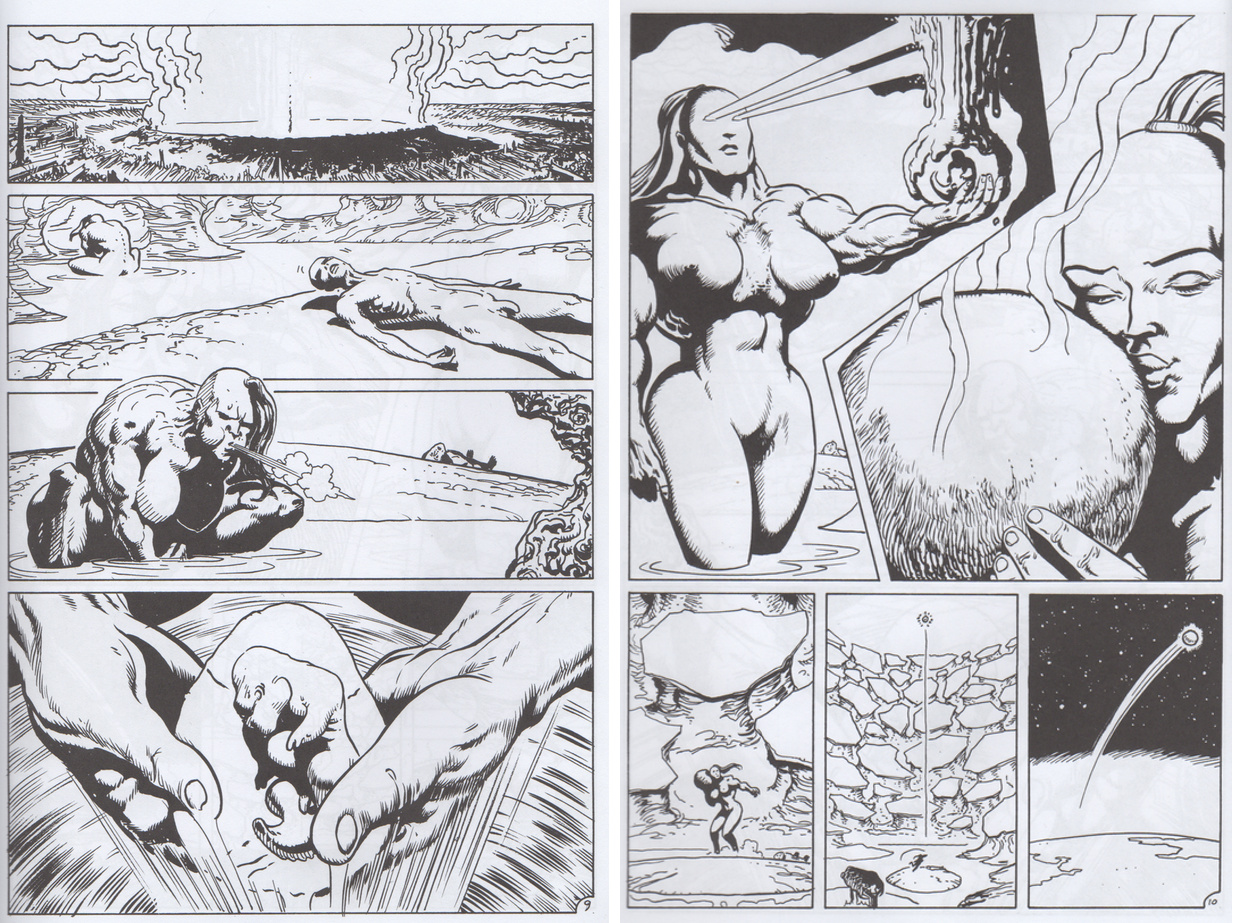
Decades later, the womb meteorite crashes back to Earth where, yep, an elderly couple find the child within and raise it as their own. Things go horribly wrong as the tiny manchild brutalizes his hayseed parents and lays waste to an entire town with his superpowers.
From there, the story intertwines a prickly arsehole movie mogul Sidney Wallace (based on Walt Disney) and young friends Jerry Spiegal and Joe Schumacher (thinly veiled versions of Jerry Siegel and Joe Schuster), who create Superman-analogue True-Man. Maximortal shows the two creators getting screwed in excruciating detail while showing Wallace getting impossibly rich.
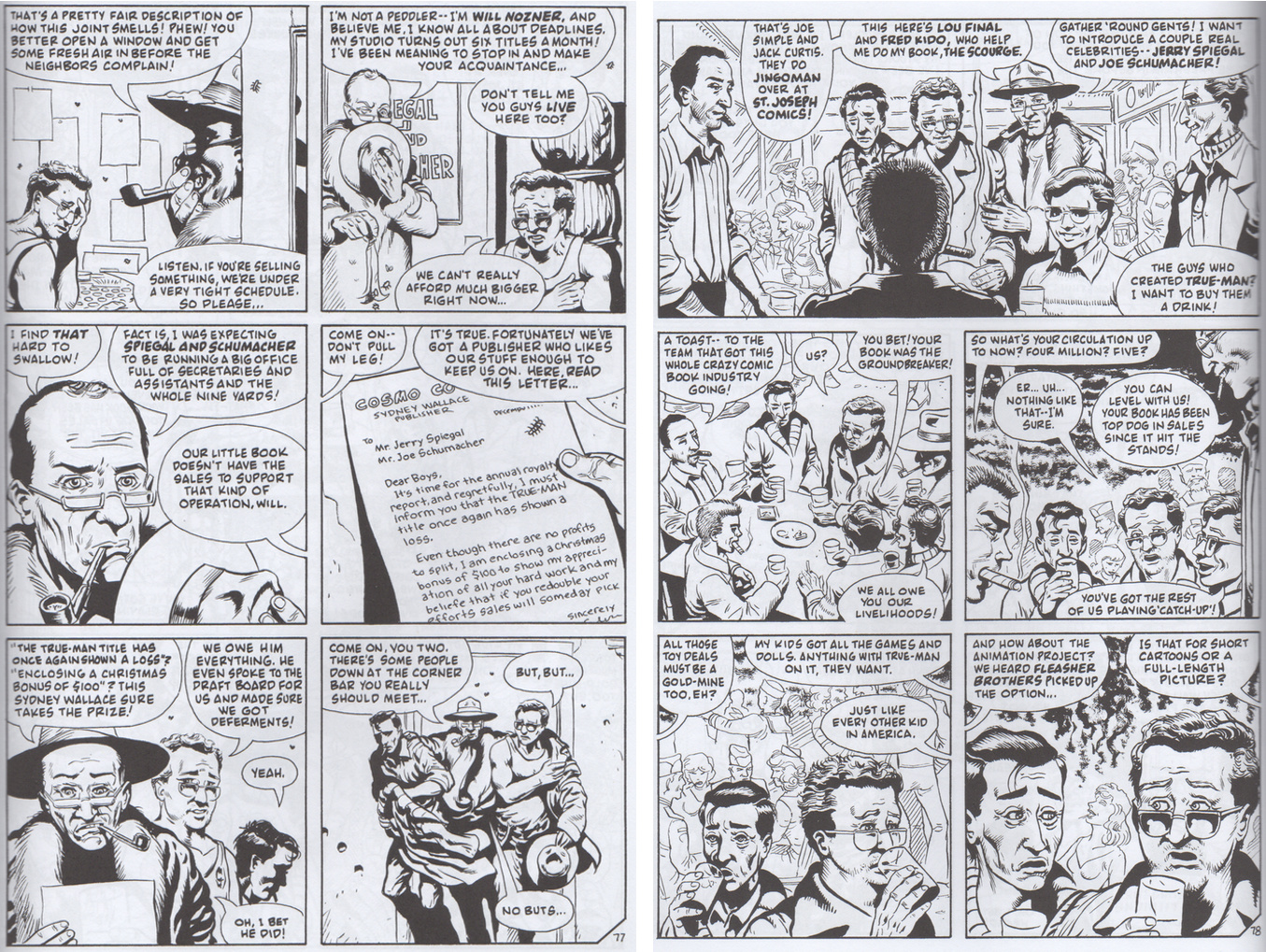
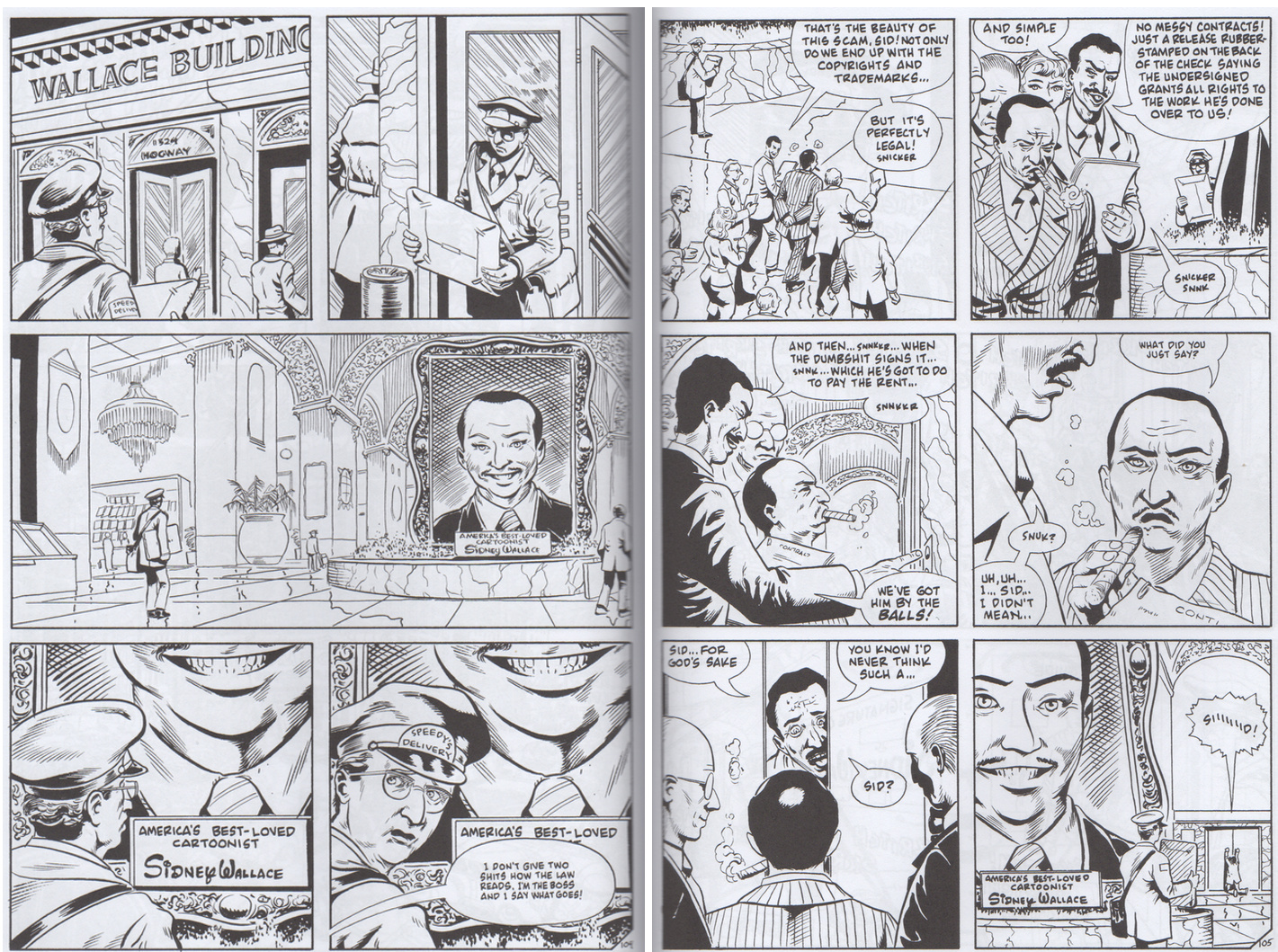
Veitch manifests a shamanic understanding of Superman, presenting him as something that bubbled up through the collective consciousness of the 20th century. The cartoonist drags the Superman concept through the iconic spaces of the preceding 100 years.
Encounters with Sherlock Holmes and Albert Einstein push through the porous membrane separating reality and fiction. One chilling sequence shows True-Man wielded as a weapon of mass destruction at Hiroshima while his creators struggle through low-end jobs.
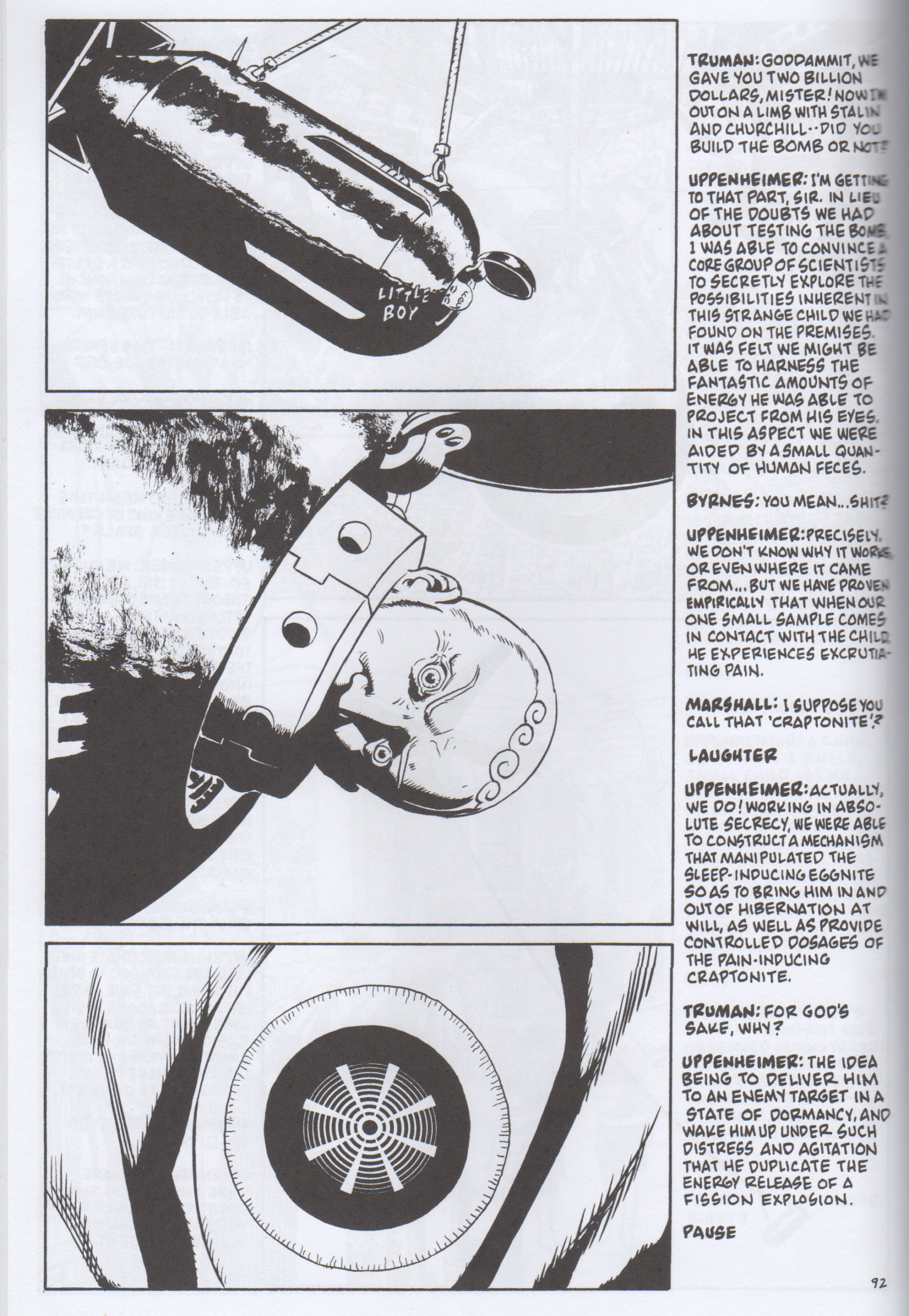
The Maximortal is, in the main, broad, polemic caricature but there are cutting edges of truth to much of it. Until legendary artist Neal Adams started a campaign for Siegel and Shuster to get recognised and compensated for their legacy and work – tied to the first big Superman movie – the two men suffered destitute lives in near-total obscurity.
The exploitative nature of old-school work-for-hire contracts get alluded to in slimy fashion, right alongside references to the meteoric rise of Wesley True-Man/Superman as a cultural icon. Nods at the terrible turns that Siegel and Shuster’s lives took – a dead-end office courier job for one, blindness for the other – get at the truth behind Superman’s origins.
The collected edition’s epigraph is a quote from philosopher Paracelsus: “In the shit, the gold.” Veitch threads the metaphor all throughout The Maximortal in a way that constantly reminds readers of the humble, pulpy beginnings of the superhero idea and the more crassly mercenary executions of the genre.
Superheroes started as disposable cheap thrills but became something more valuable than anyone could have predicted. The Maximortal soars both as a heady exploration of how the genre has continued to swing back and forth along the continuum of shit and sublime, and a damning testament to how the comics business can chew up and spit out the very talent responsible for its success.
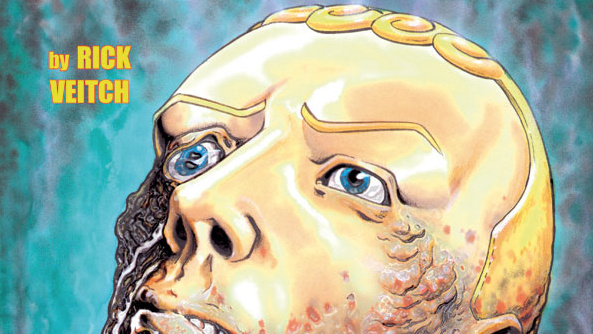
Comments